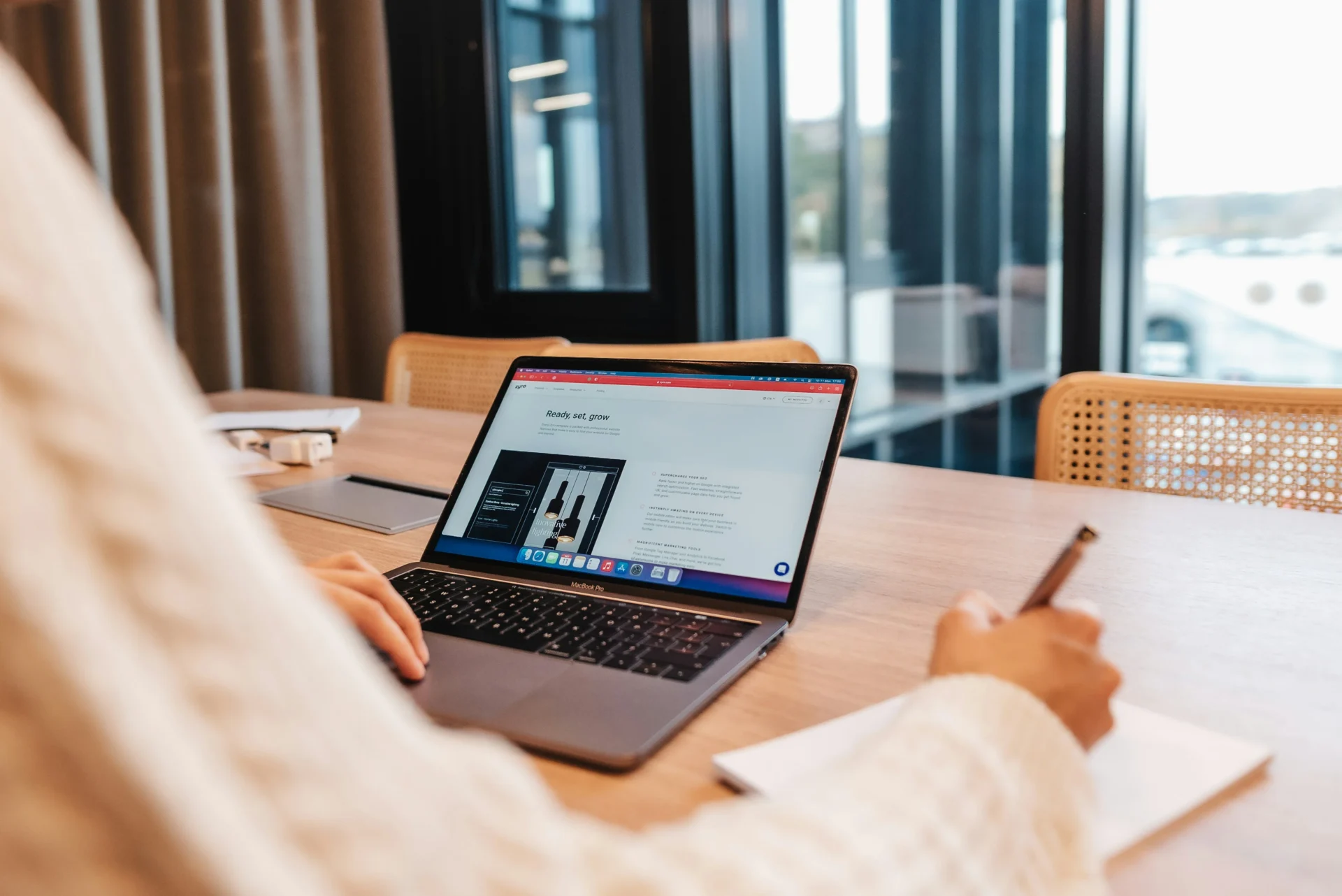Your website is more than just a corner of the internet—it’s the face of your business, the first place many customers will interact with your brand. But a website needs to be more than attractive; it must be intuitive, functional, and designed to drive results. Whether you’re looking to engage customers, boost sales, or simply establish credibility, the design of your site plays a crucial role. It’s not just about looks—usability and performance are equally important for keeping visitors on your page. This is where a talented web designer becomes your secret weapon, helping you create a website that truly works for your business. When you’re thinking about how to choose a web designer, it’s essential to keep these factors in mind to ensure you find someone who can bring your vision to life.
Choosing the right web designer can be the difference between a site that elevates your business and one that falls flat. A great designer will take your vision and turn it into a user-friendly, high-converting site that works for your audience. In this guide, we’ll walk you through the steps on how to choose a web designer—covering everything from setting clear goals to evaluating portfolios—so you can confidently select the best fit for your project. By the end of this blog, you’ll have the tools to make an informed decision and build a website that supports your business goals.
Laying the Groundwork for a Successful Web Design Project
Before you begin your search on how to choose a web designer, you need to know exactly what you’re looking for. Getting clear on your needs and goals will help you communicate your vision and find a designer who understands your business. Start by defining your goals—are you looking to generate leads, boost sales, share information, or build a strong brand presence? Knowing your primary objective will guide the design process and give you a way to measure the site’s success. Also, consider the platform you want to use, whether it’s a custom build or an easy-to-use platform like WordPress or Wix, to ensure it aligns with your vision and budget.
Next, you must identify your target audience. Understanding who will visit your site helps you tailor the design, content, and user experience to meet their expectations. Dive into their demographics, interests, and online behaviors to create a site that speaks directly to them. A website that resonates with your audience boosts engagement and increases the chances of conversions. By knowing your audience inside and out, you can choose a designer with experience in your specific market or industry.
Finally, get realistic about your budget and timeline. Set a budget that reflects the level of expertise you need, but don’t skimp on quality—investing in a skilled designer will pay off long-term. Establish a timeline that considers the complexity of your site and your desired launch date. By clarifying your goals, audience, budget, timeline, and platform upfront, you’ll be ready to choose a web designer who can bring your vision to life and create a site that truly works for your business.
Essential Qualities of a Good Web Designer
A great web designer blends technical expertise, creative vision, and problem-solving prowess to deliver exceptional websites. The technical skills are the foundation of any successful web project. Look for a designer who is proficient in HTML, CSS, and JavaScript—the core languages that drive website functionality. Additionally, experience with Content Management Systems (CMS) like WordPress, Drupal, or Joomla will streamline the development process and make content updates easier. A designer who understands responsive website design ensures that your site will look great on any device, while SEO knowledge is essential for making your site visible to search engines and boosting traffic.
Beyond the technical, a good web designer must have a strong creative eye. Look for someone who has a keen sense of aesthetics, ensuring that your site is visually appealing and easy to navigate. Familiarity with UX principles ensures your site is not just beautiful but user-friendly and engaging. Color theory and typography skills are key to creating a visually balanced and readable design that enhances the user experience. Additionally, a designer who can translate your brand’s identity into design elements—like logos, color schemes, and typography—will strengthen your brand’s online presence and make your website truly unique.
Finally, soft skills are just as important as technical and design expertise. A designer with effective communication skills will listen closely to your needs and keep you informed throughout the project. Time management is essential for meeting deadlines and staying on track. Problem-solving skills will help your designer overcome any roadblocks that arise, while an attention to detail ensures that every element of the site is polished to perfection. Focusing on these qualities increases the chances of finding a designer who exceeds your expectations.
Evaluating a Web Designer’s Portfolio
A web designer’s portfolio offers a glimpse into their skills, style, and past successes. Reviewing their work helps determine if their experience matches your needs and vision. Start by looking at the quality of their past projects, focusing on elements like layout, typography, and imagery. The style of their designs should align with your brand identity and vision—does it capture the tone and message you’re aiming for? Don’t forget to check for responsiveness—ensure the sites are mobile-friendly and look great across all devices, from desktops to smartphones.
Next, evaluate the user experience of the websites in their portfolio. Are the sites easy to navigate, with clear calls to action and well-organized content? A good designer will prioritize usability, ensuring that visitors can find what they need with minimal effort. Additionally, look for evidence of SEO best practices—check if the websites incorporate on-page SEO elements like title tags, meta descriptions, and header tags, which help with search engine visibility. These details demonstrate that the designer understands the importance of making a site both user-friendly and optimized for search engines.
Finally, consider the designer’s niche and past experience. Does the designer have experience working in your industry? This can be particularly valuable if you have specific needs or challenges. Assess whether they have handled projects with a similar level of complexity to yours, ensuring they can deliver the website you envision. See the process on how they created a successful website structure. Client testimonials can also provide insight into their reliability and customer satisfaction. Evaluating these factors will help you choose a web designer who can bring your project to life.

Key Questions to Ask Before Hiring a Web Designer
Asking the right questions is essential when choosing a website designer. It allows you to assess their skills, experience, and communication style, ensuring that they align with your project needs. Start by asking about their experience and expertise: How long have they been designing websites, and what is their experience with specific technologies or platforms relevant to your project? Ask for examples of similar projects they’ve worked on to gauge their proficiency in handling projects like yours. Their answers will give you insight into their ability to deliver the results you’re looking for.
Next, address the project timeline and communication. Understanding how long the designer estimates the project will take is crucial for managing expectations. Ask how often they will communicate with you throughout the process and what their preferred method of communication is (email, phone, video calls). Clear communication is key to a smooth collaboration, so ensure their approach aligns with your preferences. Additionally, inquire about their website design process: How do they involve clients, and how do they handle revisions and feedback? A designer who values client input and feedback will help ensure the final product meets your expectations.
Lastly, consider discussing pricing, payment terms, and post-project support. Clarify whether they charge an hourly rate or a fixed fee and ask about their payment schedule. Be sure to ask about any potential additional fees, such as for hosting or domain registration, to avoid surprises. It’s also important to discuss post-project support: Will they provide ongoing maintenance or be available for future updates? Asking these questions will help you choose the right web designer for your project.
The Pros and Cons of Freelance Designers vs. Web Design Agencies
When deciding between a freelance web designer and a web design agency, it’s important to weigh the advantages and disadvantages of each. Freelancers offer several benefits, including flexibility in scheduling and project timelines, making them a great option for clients with specific timing needs. They are also typically more cost-effective than agencies, as they charge lower rates. Additionally, hiring a freelancer means you’ll get personalized attention, with direct communication between you and the designer. However, freelancers often face challenges such as limited resources, which can impact the scale and complexity of the project. There’s also the risk of unreliability, as a freelancer might not meet deadlines or even disappear mid-project.
On the other hand, web design agencies bring a wealth of expertise and experience to the table. Agencies typically have teams of skilled professionals who can tackle complex projects and offer a diverse range of specialized tools and resources. They also provide accountability, ensuring high-quality work and a structured process for delivering results. However, agencies are generally more expensive, with higher rates reflecting their team structure and overhead costs. One downside is that you might receive less personalized attention, as communication is often routed through a project manager rather than the individual designer working on your site. Additionally, some agencies can be bureaucratic, which may slow down the process.
Ultimately, the choice between a freelancer and an agency comes down to your specific needs and priorities. Consider factors such as your budget, project complexity, and desired level of support when making your decision. Freelancers are often the better choice for smaller projects or those with tight budgets. Agencies, on the other hand, are ideal for larger, more complex projects requiring specialized skills and resources. The key is to find a web designer or team who can deliver high-quality work on time and communicate effectively.
Final Thoughts
Choosing the right web designer is a critical decision in building a successful online presence. Start by clearly defining your goals, identifying your target audience, and setting a realistic budget. It’s also essential to choose the right platform that aligns with your needs and business objectives. With these foundational steps in place, you’ll be well on your way to finding the ideal designer for your project.
Look for a designer with a solid mix of technical skills, an eye for aesthetics, and strong communication abilities. Make sure to thoroughly evaluate their portfolio to gauge the quality and style of their work. Don’t hesitate to ask the right questions, as this will help you assess their experience and how they handle projects. Additionally, weigh the pros and cons of working with a freelancer versus a web design agency based on your specific needs and budget. This will ensure that you make an informed decision and choose the best fit for your project.
By dedicating time to carefully select the right web designer, you’ll be able to create a website that not only looks fantastic but also achieves your goals. If you’re ready to take your website to the next level, consider partnering with fishbat, a premier New York digital marketing agency. With over 10 years of experience in web design and digital marketing, we can help your site stand out and drive results. Contact us today at 855-347-4228 or hello@fishbat.com for a free consultation.
Let us assist you in transforming your website into a powerful online tool!


